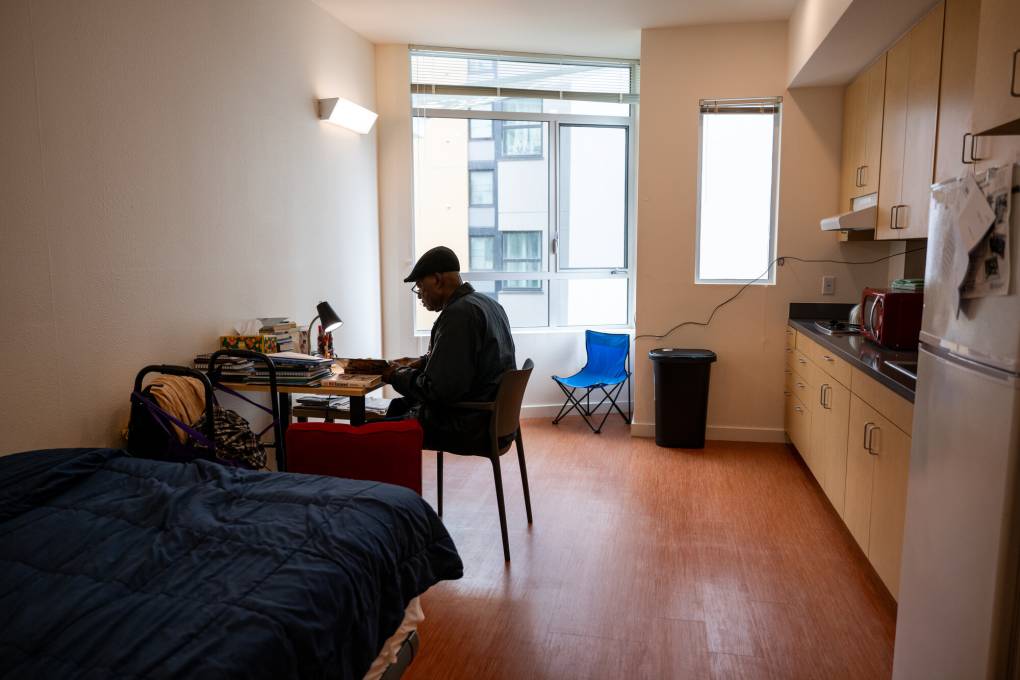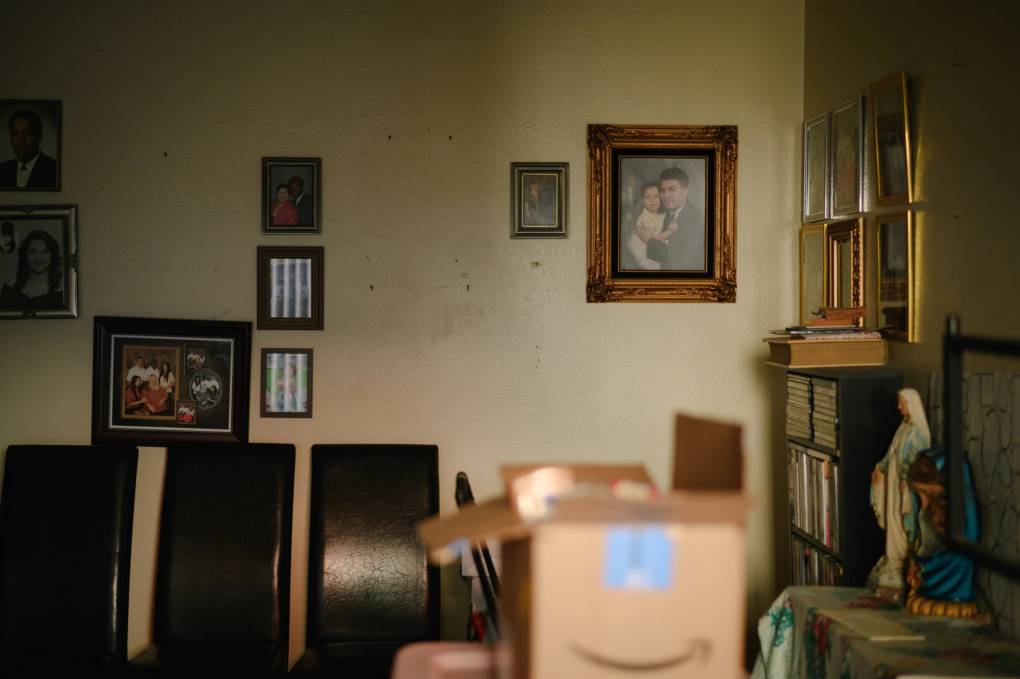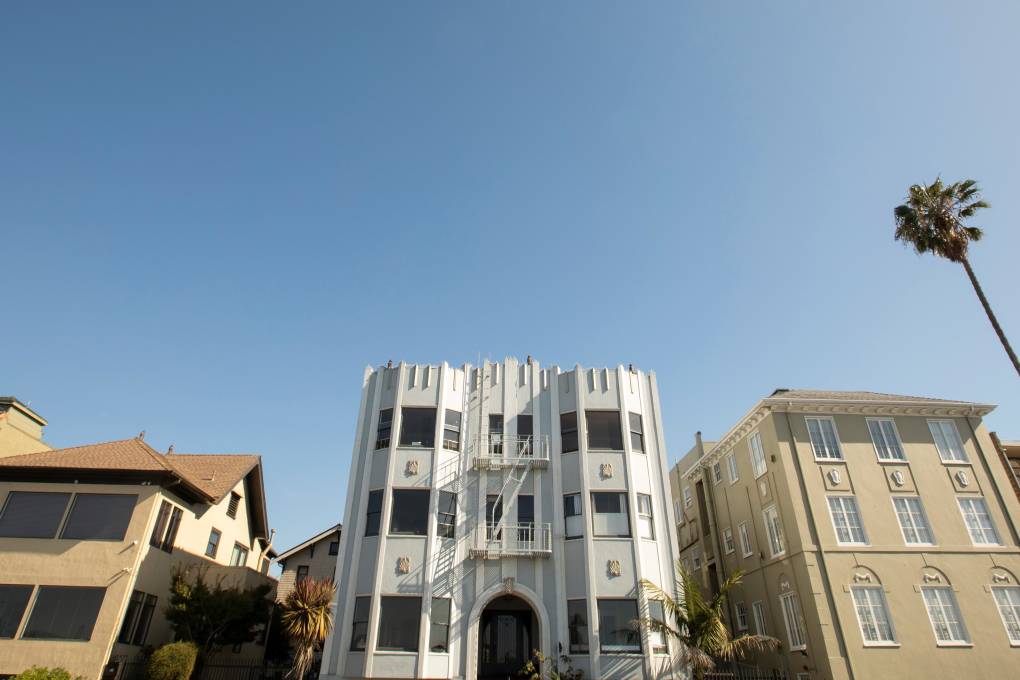A previous version of this story was published on June 1.
As California begins the slow, and halted, process of reopening, cities and counties across the Bay Area are extending eviction moratoriums to protect renters who have been financially impacted by regional shelter-in-place orders.
Most of the protections have been in place since the coronavirus pandemic began, to ease the burden of owed rent for tenants, some who have had their hours cut or lost their jobs entirely.
Well over 40 million Americans have filed for unemployment benefits since COVID-19 prompted shelter-in-place orders in mid-March. That’s one in four American workers. A recent survey from the U.S. Census Bureau found more than half of California households have lost income due to the coronavirus pandemic. And nationally, more than a fifth of respondents said they had little to no confidence that they would be able to pay their rent or mortgage payments in June.
“It's going to be really difficult for a lot of folks to resume normal rent payments when some of the eviction moratoriums start to expire,” said Michael Trujillo, an attorney at the Law Foundation of Silicon Valley.
For now, most Bay Area residents will be protected through July.
That's because the state Judicial Council’s order on April 6 to suspend eviction and foreclosure filings — a de facto moratorium — is still in effect across California.
Sasha Harnden, a policy advocate with the Western Center on Law and Poverty, said, "The Judicial Council order is temporary procedural relief meant to prevent what would otherwise happen, which is driving thousands of people to the courthouses at a time when it's really not advisable. It does not provide substantive protections in terms of new defenses a tenant can raise to stay in their homes."
In non-pandemic times, if a landlord wanted to evict a tenant, they would file a three-day notice to pay the rent or be forced to vacate the premises. If the tenant doesn’t respond within the three days, the landlord would file an eviction lawsuit in court. The court would then send the tenant a notice to respond to the lawsuit within five days, or the judge automatically rules in favor of the landlord.
Under the Judicial Council’s order, the courts won’t send that five-day notice until the order is rescinded or expires. It’s currently set to expire 90 days after the governor lifts the state of emergency.
"That's where local protections may come in, depending on where you are," Harnden said.
Cities and counties around the Bay have passed local moratoria that add protections on top of what's provided by the Judicial Council's order.
In most cases, they provide additional protections for tenants by allowing tenants to use the local moratorium as a defense against a future eviction case, once those cases can be filed. And, many of the moratoria provide a time period for tenants to repay back rent —from two months after the expiration of the moratorium in the case of Sonoma County to up to 12 months in the case of Solano County.
For local rules, it all depends on where you live. Below is a list of the moratoria for the eight Bay Area counties that have them (Napa County does not have its own). San Jose, Oakland and Alameda are among the cities that have passed their own rules -- check here for details.
Alameda County
Expires: 30 days after end of local public health emergency
Repayment term: up to 12 months after end of moratorium
For more info, click here.
Contra Costa County
Expires: July 15
Repayment term: until Nov. 15, 2020
For more info, click here.
Marin County
Expires: June 30
Repayment term: up to 90 days after the end of moratorium
For more info, click here.
San Francisco County
Expires: July 31
Repayment term: until Jan. 31, 2021
For more info, click here.
San Mateo County
Expires: July 28
Repayment term: up to 90 days after the end of state of emergency, with three, one-month extensions
For more info, click here.
Santa Clara County
Expires: July 28
Repayment term: up to 6 months after moratorium ends to repay at least 50% of the past-due rent, and up to 12 months after moratorium ends to repay past-due in full
For more info, click here.
Solano County
Expires: 90 days after state of emergency ends
Repayment term: up to 12 months after state of emergency ends
For more info, click here.
Sonoma County
Expires: 60 days after state of emergency ends
Repayment term: up to two months after state of emergency ends
For more info, click here.
So what else is available to tenants? Here's what we know.
Reminder: There is currently no rent freeze or moratorium on rent in California. So if you can't pay, action is likely required on your part.
And remember: Partial payment of rent does not prevent your landlord or property manager from starting the eviction process, unless you get a written agreement.
Do I have to pay rent?
If you can afford it, yes.
State and local eviction moratoriums do not prevent rent from being due, and local officials are encouraging those who are healthy and employed to pay it.
What do I do if I can't pay rent?
If you can't pay rent due to coronavirus-related circumstances, here's what you should do:
- Put your case in writing: Declare, in writing, the reason you cannot pay your rent. The advocacy group Tenants Together created this sample letter you can use.
- Provide specific documentation: Include documents that show your income has been impacted by the pandemic and resulting shelter-in-place orders. That could be a letter or text from your employer detailing a reduction in work hours, pay stubs showing a decrease in wages or some documentation demonstrating a loss of available work opportunity — like decreases in Lyft rides or Postmates deliveries.
- Submit documents to your landlord or property manager: Ideally, you'd do this before rent is due. So make sure you get it in as soon as possible.
- Keep a copy of all documentation for your records: If your landlord decides to pursue the eviction, or take you to small claims court, you'll need these documents. Store them somewhere safe!
- Reach out to a lawyer or advocate: To get ahead of any potential court proceeding, you can reach out to an attorney or legal aid office ahead of time. Check here for more resources.



